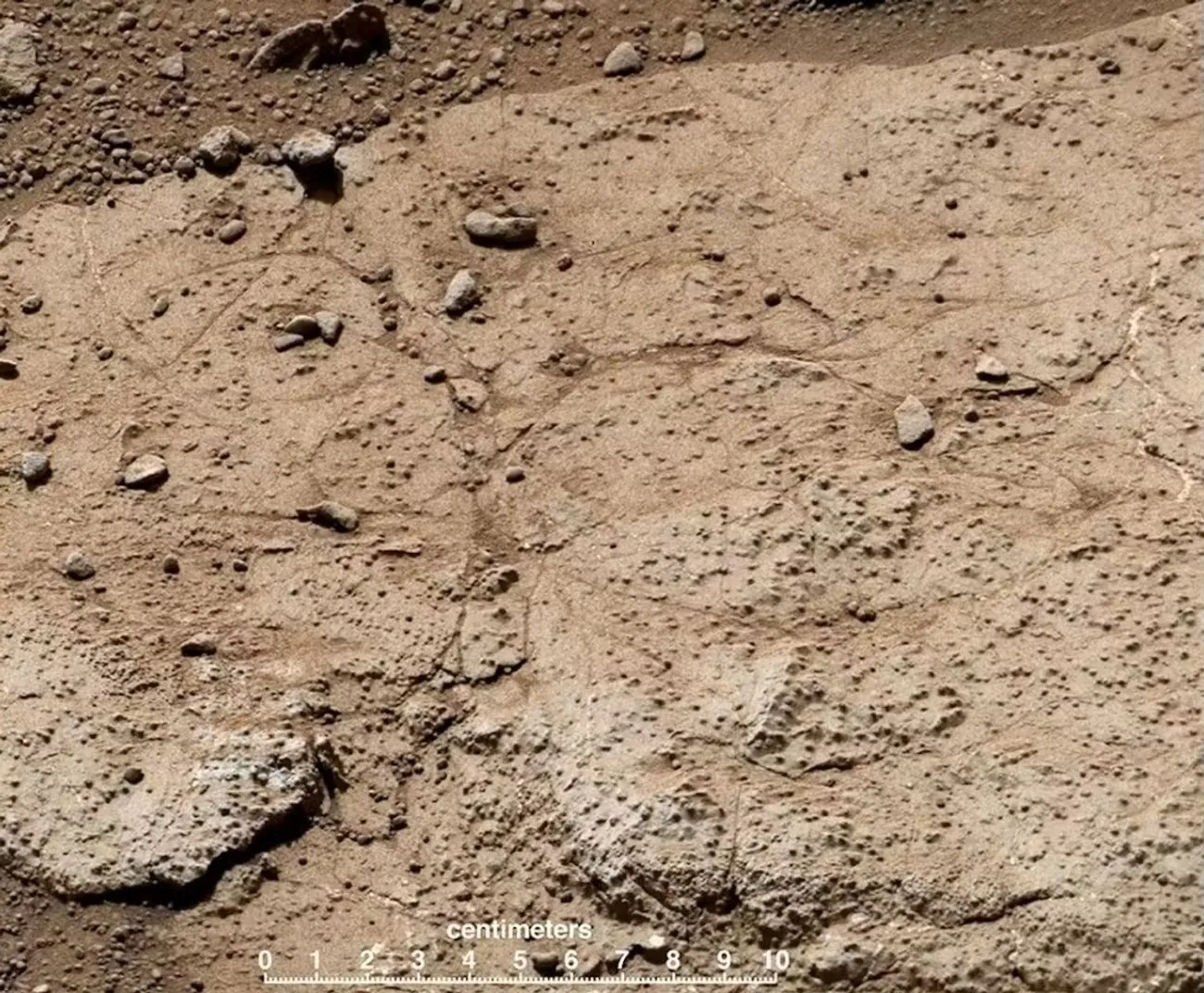NASA apparatus discovered the largest organic molecules on Mars
Kyiv • UNN
NASA's Curiosity rover has discovered the largest organic molecules on Mars, dating back 3.7 billion years. The molecules could be fragments of fatty acids that surround biological cells.

NASA's Curiosity rover has discovered the largest organic molecules ever found on the "red planet." This was reported by Science Alert, according to UNN.
Details
It is noted that the discovery is one of the most important findings in the search for evidence of past life on Mars. These molecules may actually be fragments of fatty acids, which are found, for example, in membranes surrounding biological cells.
Scientists believe that if life ever arose on Mars, it was likely microbial in nature
The organic molecules found by Curiosity consist of carbon atoms linked in long chains, with other elements, such as hydrogen and oxygen, attached to them.
They come from a 3.7-billion-year-old Cumberland rock, which the rover found on the presumably dried-up lakebed in Mars' Gale Crater.
In fact, scientists were looking for evidence of amino acids, which are the building blocks of proteins and, therefore, key components of life as we know it. But this unexpected find is almost as exciting

This is the second unique discovery in the context of the search for life on Mars in the last month. In March of this year, scientists presented evidence of features of another rock taken by the Perseverance rover. These features, called "leopard spots" and "poppy seeds," could have been created by the action of microbial life in the distant past.
"The Mars Sample Return mission, a collaboration between NASA and the European Space Agency, offers hope that rock samples collected and preserved by Perseverance can be brought to Earth for study in laboratories," the publication summarizes.
Recall
The Earth's inner core could have deformed by 100 meters in height over the past 20 years. Changes are occurring at the boundary of the inner and outer core, which may be related to changes in the planet's magnetic field.
Elon Musk plans to send Starship to Mars in 202615.03.25, 22:55 • 28515 views